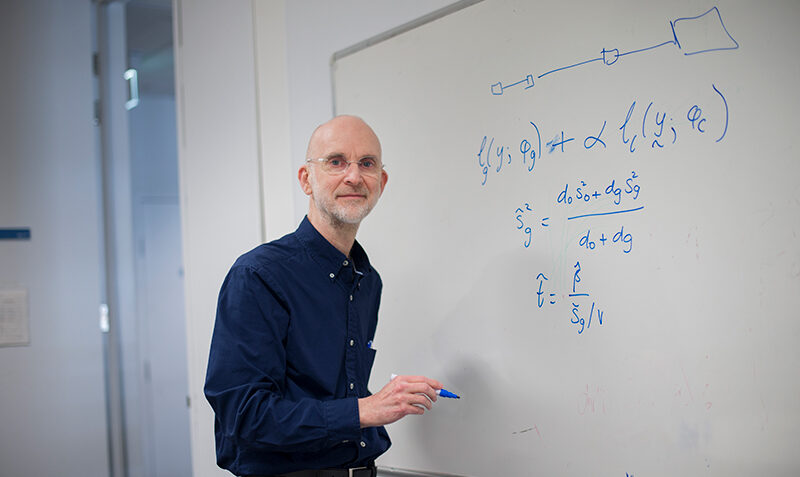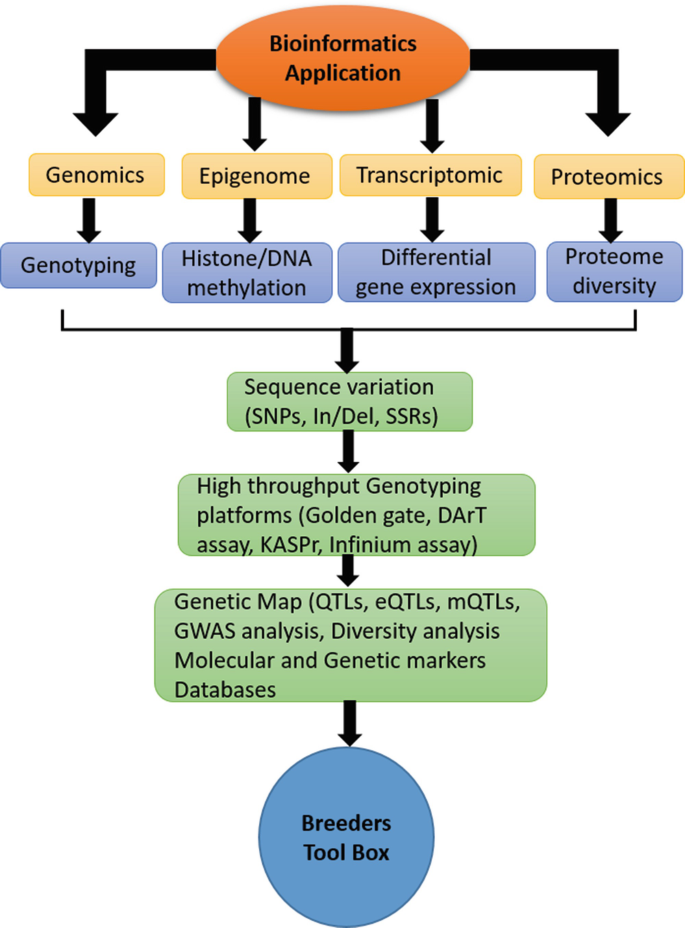The Main Principles Of Bioinformatics Tutor
The Main Principles Of Bioinformatics Tutor
Blog Article
Excitement About Bioinformatics Tutor
Table of ContentsBioinformatics Tutor - An OverviewFacts About Bioinformatics Tutor UncoveredSome Ideas on Bioinformatics Tutor You Should KnowSome Of Bioinformatics TutorThe Facts About Bioinformatics Tutor Revealed
Of the overall participants entailed in the training, 80% were students from public college establishments, while the staying 20% came from personal establishments. To qualify for a certificate of engagement, students were required to participate in a minimum of 90% of the total training hours. As an outcome of this requirement, an excellent 95% of the participants efficiently acquired their certificates, having not just met the minimum presence requirements yet additionally finished all designated tasks throughout the training.
During the elevation of the COVID-19 pandemic, specifically in between June and August 2020, the project team was entrusted with organizing specialized training in bioinformatics. This training was especially targeted at trainees from the study group Center for Study in Applied Computing at the Federal College of Pará (UFRA) The adaptation to remote knowing platforms because of the pandemic created a chance to discover new teaching techniques and digital devices that boosted both reach and performance.
This course was developed to provide an obtainable yet thorough overview of Artificial Intelligence techniques, especially as applied in bioinformatics (Bioinformatics Tutor). This virtual format made it possible for involvement from pupils throughout Brazil, several of whom could not have had the opportunity to participate in in-person sessions.
The smart Trick of Bioinformatics Tutor That Nobody is Talking About
Around 50% of the complete training hours were dedicated to useful activities where trainees developed intelligent designs and applications in a variety of scientific domains, including genetics, molecular biology, and ecological data analysis. These systems made it possible for pupils to involve in real-time information adjustment, design training, and algorithm testing.
The course attracted 80 participants in total. Sixty of them were associated with different college institutions in the state of Pará, while the remaining twenty originated from institutions found in five various other Brazilian states. This wide geographical representation highlighted the national passion in bioinformatics and the expanding demand for specialized skills in this field. By presenting Artificial Knowledge in a relevant and sensible context, the effort served to bridge the void in between theory and real-world application, giving trainees with a solid foundation for future study or employment in the area.
The training initiative created part of a wider academic outreach initiative called the Bioinformatics when driving project. This job has, throughout the years, presented lots of pupils to the world of bioinformatics and computational biology. The events held under this umbrella initiative have happened across numerous areas and years, as summed up in Table 1 (Checklist of events, places, years, and complete varieties of students and trainers)
Among the most amazing end results of the Bioinformatics when driving initiative has been its payment to the growth of decentralized research teams. Several of these groups, at first brought with each other by their participation in training occasions, have considering that taken place to generate independent clinical research in collaboration with regional academic establishments. The training not just cultivated scientific thinking within the context of bioinformatics yet additionally triggered collaborative partnerships that extended beyond the training environment. These collaborations have resulted in increased local scientific efficiency and contributed meaningfully to the advancement of the broader bioinformatics community in Brazil.
The Best Guide To Bioinformatics Tutor
The job itself was conceived and organized by MB and RR, that supervised the planning and implementation of each action. Lectures were provided by a multidisciplinary group being composed of MB, FA, EF, KP, JS, DM, SN, LP, LG, RR, air conditioning, and ih. The very same team, leaving out IH and RR, additionally functioned as tutors for the sensible training modules. Financing for the task was given via the give 88887.200562/ 2018-00 from CAPES. The writers extend their thankfulness to every person who added to the realization of this job, whether directly or indirectly, since its beginning.
The Federal University of Pará's Office of Study (PROPESP/UFPA) also offered economic assistance, specifically for the production of the last manuscript. The writers proclaim no monetary or business problems of interest that could have influenced the research study. All analyses and viewpoints revealed in this write-up are only those of the writers and do not always reflect those of their particular organizations, the author, editors, or customers included in the magazine procedure.

All about Bioinformatics Tutor
From a pedagogical perspective, the training strategy made use of in the training was purposefully interactive. Classes were conducted in a manner that urged trainee Discover More involvement and discussion, exceeding memorizing memorization to check out just how concepts are established, applied in life, and checked in academic setups. The educational ideology concentrated on nurturing both solid and having a hard time students, supplying personalized support, and structure confidence via sustained mentorship and patience.

Each group, including look what i found around 36 individuals, was supported by three advisors-- a lot of whom were postdoctoral researchers with customized experience. These advisors not only helped make the team projects however also facilitated their execution, making sure that each research study question was both pertinent and properly challenging. The objective was to provide a naturally reasonable context that individuals can discover with flexible goals and accessibility to curated datasets.
For extra understandings into the method and results of this project-based learning technique, readers are guided to S1 Text, that includes thorough descriptions of the instructional framework, assessment techniques, and job themes utilized in the training sessions.
What Does Bioinformatics Tutor Mean?
Of the overall individuals entailed in the training, 80% Full Report were students from public higher education organizations, while the continuing to be 20% came from private institutions. To qualify for a certificate of involvement, trainees were called for to go to at least 90% of the complete training hours. Notably, past the pupils that enrolled in the training sessions, seven skilled trainers took part in supplying the training courses, while 3 committed research teachers worked with the overall training process. Approximately 50% of the total training hours were dedicated to practical tasks where pupils developed intelligent designs and applications in a range of scientific domains, consisting of genes, molecular biology, and ecological information evaluation. The training not only fostered scientific reasoning within the context of bioinformatics yet additionally triggered collective connections that extended beyond the training setting.
Report this page